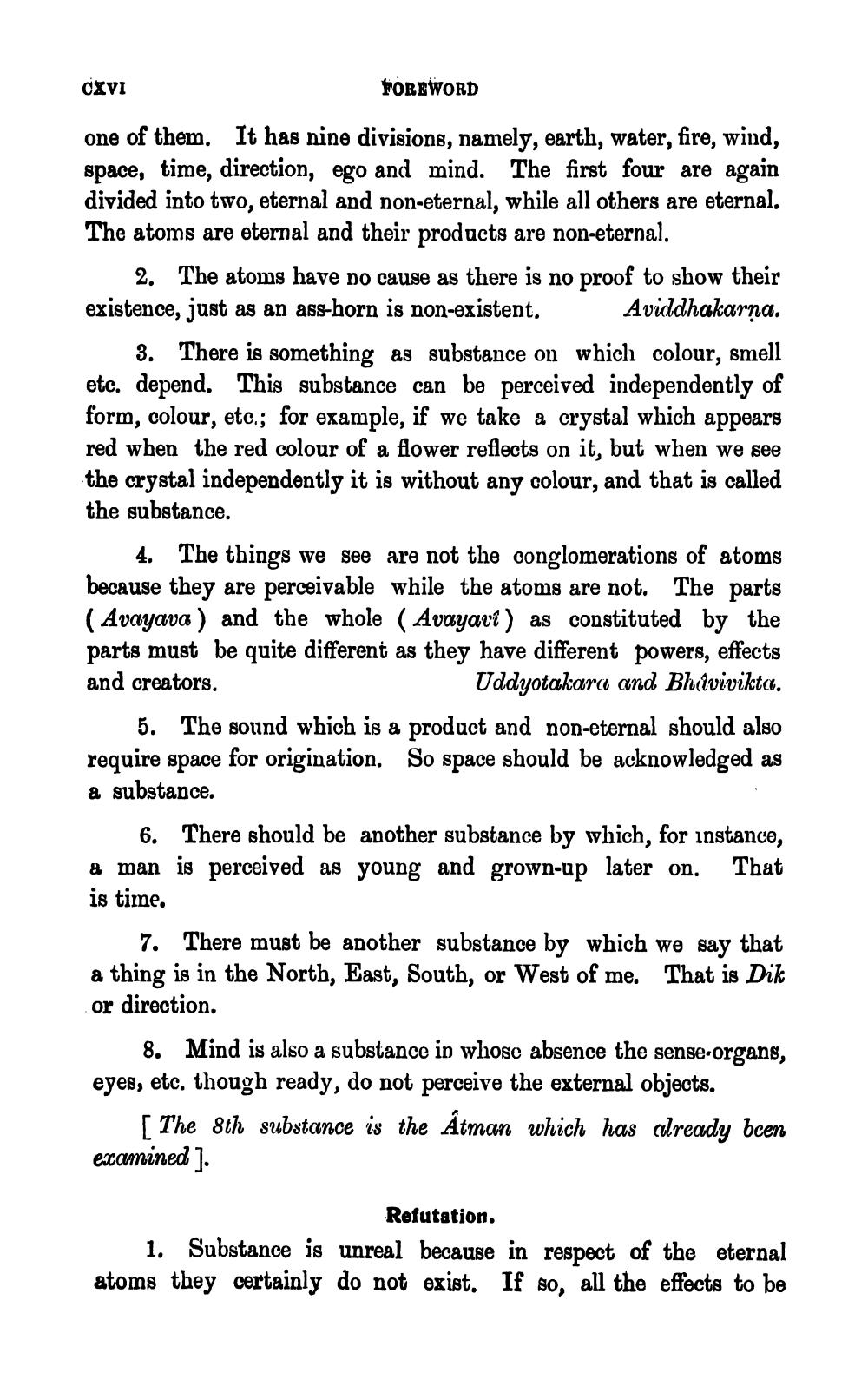________________
CXVI
FOREWORD
one of them. It has nine divisions, namely, earth, water, fire, wind, space, time, direction, ego and mind. The first four are again divided into two, eternal and non-eternal, while all others are eternal. The atoms are eternal and their products are non-eternal.
2. The atoms have no cause as there is no proof to show their existence, just as an ass-horn is non-existent. Aviddhakarņa.
3. There is something as substance on which colour, smell etc. depend. This substance can be perceived independently of form, colour, etc.; for example, if we take a crystal which appears red when the red colour of a flower reflects on it, but when we see the crystal independently it is without any colour, and that is called the substance.
4. The things we see are not the conglomerations of atoms because they are perceivable while the atoms are not. The parts (Avayavo ) and the whole ( Avayari) as constituted by the parts must be quite different as they have different powers, effects and creators.
Uddyotakara and Bhavivikta. 5. The sound which is a product and non-eternal should also require space for origination. So space should be acknowledged as a substance.
6. There should be another substance by which, for instance, a man is perceived as young and grown-up later on. That is time.
7. There must be another substance by which we say that a thing is in the North, East, South, or West of me. That is Dik or direction.
8. Mind is also a substance in whose absence the sense organs, eyes, etc, though ready, do not perceive the external objects.
[ The 8th substance is the Atman which has already been examined ].
Refutation. 1. Substance is unreal because in respect of the eternal atoms they certainly do not exist. If so, all the effects to be




